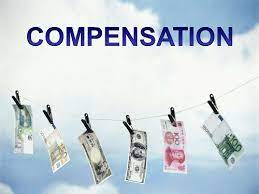Employee Benefits and Compensation Comparison
Apr 27, 2023
This essay discusses the differences between employee benefits and compensation. Employee benefits are a form of compensation that employers provide to their employees on top of their salary. Benefits can range from health insurance, retirement plans, flex time, life insurance, paid leave, and other items. Compensation is what an employer pays for the services provided by an employee in exchange for employment. This includes salary, wages, bonuses, commissions and other forms of payment.
The major difference between employee benefits and compensation is that benefits are not typically considered taxable income while most forms of compensation are subject to taxes. This is important because it can significantly impact how much money an employee may receive as part of their total package. For example, if an employer pays a bonus or commission then the amount received is subject to taxes whereas benefits such as health insurance are typically provided pre-tax.

Another difference between employee benefits and compensation is that the employer may have limits on how much they can contribute towards benefits while there may be no limit on how much they can pay in compensation. This means that employers will often spend more money on compensating employees than providing additional benefits. Benefits typically remain constant for a specific period of time, however, compensation can vary depending on performance or other factors.
Employee benefits and compensation play an important role in attracting and retaining talent within an organization. Employers should carefully consider both when creating their overall compensation package. Benefits are often seen as a way to reward loyalty and commitment to the company by offering services that are not necessarily part of the salary such as health insurance or pension plans. Compensation, on the other hand, is typically seen as a way to motivate employees and reward them for their hard work and dedication.
In conclusion, there are a few major differences between employee benefits and compensation. Benefits are generally offered pre-tax while most forms of compensation are subject to taxes. Employers may have limits on how much they can contribute towards benefits while there may be no limit on how much they can pay in compensation. Employee benefits and compensations play an important role in attracting and retaining talent within an organization so employers should carefully consider both when creating their overall compensation package.
